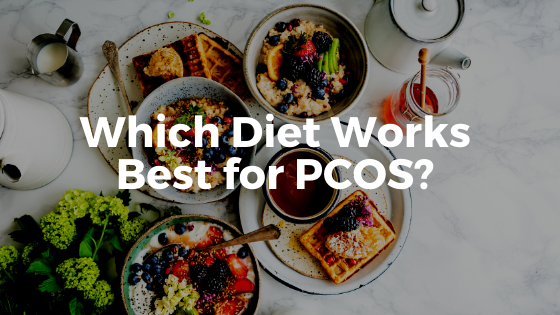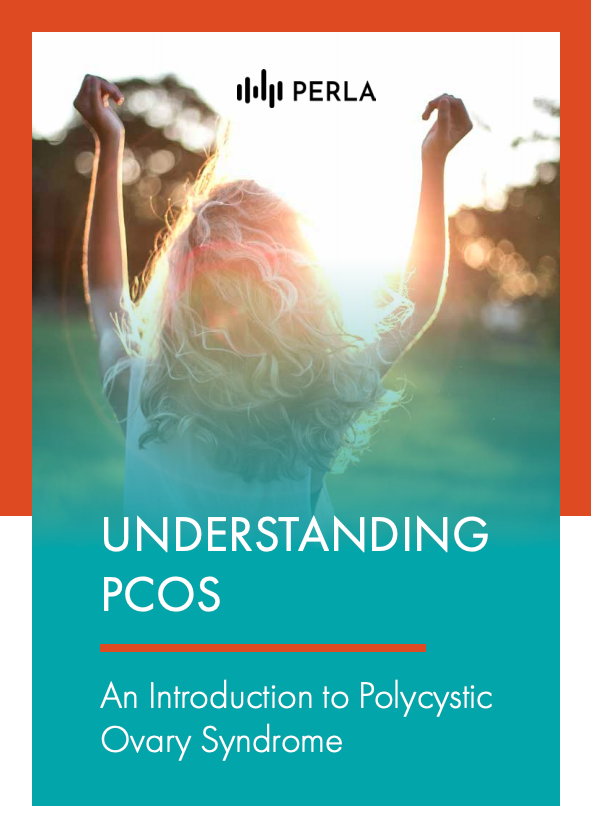Healthy eating is one of your key weapons in fighting polycystic ovary syndrome (PCOS). Despite many claims, there is no miracle diet for PCOS, but you have to find out what works best for your body. An optimal diet must be calorie-appropriate and nutritionally balanced, using a variety of food from different food groups. The type and amount of food you eat is important for managing both your weight and your insulin resistance. It’s best to work with a dietitian that understands PCOS, and can support you to find the optimal diet for your needs and your body.
Eating well and leading an active lifestyle
If you are overweight, lifestyle modifications to reduce weight is the most effective way of improving your symptoms.1,2 In fact, even small amounts of weight loss—about 5-10% of your current body weight— can have a very positive impact on your overall health and can improve your symptoms.3
How about lean women with PCOS? It is now widely known that insulin resistance also affects women with lean PCOS and can cause symptoms of hyperandrogenism (high levels of androgens) and even infertility.4 You don’t need to lose weight if you have a normal BMI (Body Mass Index), but you will still benefit from choosing a healthy diet.
Why is Diet Important in Women with PCOS?
Many of the symptoms you are experiencing are caused by insulin working less efficiently in your body—a phenomenon called insulin resistance—which means higher levels of insulin are needed to perform its action.
High levels of insulin in the bloodstream have a negative effect on hormone production of the ovaries. First, it increases the release of a hormone called luteinizing hormone (LH) from the pituitary gland, a pea-sized hormone gland in your brain. Second, both LH and insulin drives the production of testosterone in the ovaries, which has a negative effect on egg development.
Furthermore, the rush of pancreatic insulin and the delayed onset of insulin action also contributes to a hypoglycemic event, which can lead to increased cravings for sweets or carbohydrate-rich food.
Over time, this process will impair the ability of the pancreatic cells to regulate glucose in the body, which can lead to type 2 diabetes, a disorder commonly observed in women with PCOS.5 Thus, developing healthy eating and activity habits that improve insulin resistance should be your focus in managing your symptoms.
What is a Low GI diet?
The glycemic index or GI only applies to foods rich in carbohydrates. It describes how much blood sugar levels are increased by a particular food item.6 A GI of 70 to 100 is high, a GI of 55 or less is low. Foods with low GI values are said to be healthier and benefit women with PCOS,7 but that is not always the case. High-fat food may not raise your blood glucose and therefore may have a low GI value, but they may lead to the development of fat cells, leading to an increase in weight.
A dessert like custard has a GI of 29-43, whereas watermelon has a GI of 76. But it is evident that watermelon is nutritionally superior to custard. So while GI is a valuable tool in the nutritional management of PCOS, it should not be the only criterion when choosing appropriate meal choices.
Tips for eating healthy
Choose the right type of carbohydrates. Diets high in carbs, especially refined and processed forms, should be avoided by women with insulin-resistant PCOS. At least 40% of your total calories should come from plant-based carbs such as vegetables, fruits, beans, and whole-grain bread. Fruits are high in sugar but they are also rich in fiber, which reduces insulin and glucose spikes. Aim for at least 2 servings (2 cups) of fruit per day.
Choose healthy dietary fats. Cholesterol and triglycerides are types of fat that are essential for the normal functioning of the body. But too much of these can build up in the arteries and cause heart problems. Foods high in fat can lead to weight gain and should be eaten in moderation. Choose healthy dietary fats such as omega-3 fatty acids. They are found in oily fish like salmon, tuna, sardines, and herrings.
Cut down on sugar. You probably have been told to remove sugar from your diet. The good news is you don’t need to completely get rid of it, but have a look at how to reduce the amount you regularly consume. According to the American Heart Association (AHA) guidelines, you should limit your added sugar intake to 100 calories (6 teaspoons) per day.8 For reference, a 12-ounce regular soda contains about 8 teaspoons of sugar. A lot of food items are also high in added sugar disguised in many unsuspecting names: high-fructose corn syrup, malt sugar, agave nectar, caramel, molasses, fruit juice concentrate, and dextrose, to name a few.
Don’t eliminate an entire food group. You can enjoy almost any food as long as you eat in moderation. Restrictive diets can lead to nutritional deficiencies. Many women have successfully managed their PCOS after adopting a plant-based only diet. However, there is no evidence that a specific diet type is better than another.9 You need a diet that is sustainable. If you are in an extremely restrictive diet, you are unlikely to stick with it long enough to see results.
To find a diet that works best for you and your body, we suggest working with a dietitian that is experienced in PCOS and can help you customize your diet, so that together you can find a personalized diet and nutrition plan that matches your goals and needs.
Sources:
- Meyer C, McGrath P, Teede HJ. Effects of Medical Therapy on Insulin Resistance and the Cardiovascular System in Polycystic Ovary Syndrome. Diabetes Care 2007;30:471-478
- Balen A. Should obese women with polycystic ovary syndrome receive treatment for infertility? BMJ 2006;332:434-435
- “Evidence-based Methodology Workshop on Polycystic Ovary Syndrome,” NIH Office of Disease Prevention, 2012.
- Morciano A, Romani F, Sagnella F, et al. Assessment of insulin resistance in lean women with polycystic ovary syndrome. Fertility and Sterility. 2014;102(1):250-256.e3. doi:10.1016/j.fertnstert.2014.04.004.
- Legro RD, Kunelman AR, Dodson WC. Prevalence and predictors of risk for type 2 diabetes mellitus and impaired glucose tolerance in polycystic ovarian syndrome: a prospective, controlled study in 254 affected women. J Clin Endocrinol Metab. 1999;84:165–9.
- About Glycemic Index. Glycemicindex.com. http://www.glycemicindex.com/about.php. Published 2019. Accessed May 20, 2020.
- Marsh KA, Steinbeck KS, Atkinson FS, Petocz P, Brand-Miller JC. Effect of a low glycemic index compared with a conventional healthy diet on polycystic ovary syndrome. The American Journal of Clinical Nutrition. 2010;92(1):83-92. doi:10.3945/ajcn.2010.29261
- Added Sugars. www.heart.org. https://www.heart.org/en/healthy-living/healthy-eating/eat-smart/sugar/added-sugars. Published 2018. Accessed May 21, 2020.
- International Evidence-Based Guideline For The Assessment And Management Of Polycystic Ovary Syndrome 2018. Melbourne; 2018.


